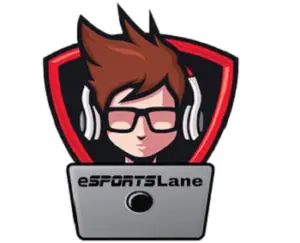One of the more recent ways of doing business in eSports has been the set-up of franchises and that led to an industry-wide disruption in many ways. If you are looking to understand more about what are eSports franchises, how their development took place, their benefits and concerns and what the future holds, below is a solid guide.
Table of Contents
What are Franchises [in general]?
Franchises are simply put, a right or privilege to market another’s products or services in a given area.
In the context of sports, franchises are awarded by a sporting association to contest a designated area (i.e. NFL in American football, NBA in basketball and IPL individual franchises/teams playing for a particular city in Indian cricket).
eSports Franchising
For eSports, the emergence of franchises into the ecosystem has heralded a new dimension of engagement with eSports audiences.
With the growing popularity and clout of eSports, more and more teams and investors are considering the possibility of becoming professional franchises.
Previously, eSports was contested between individuals and amateur teams playing against one another in local or at best regional tournaments. Teams would recruit and train their own players and join various leagues and tournaments by paying fees to play.
Based on their performance, the teams would be rewarded from a prize pool collected from the entry fees paid by all the participating teams along with any tournament revenues earned from sponsorship, ticket sales, merchandise, food and donations.
Also Read:
This was a simple model but one that wasn’t quite sustainable at the highest level.
With growing success and earnings, some teams began to grow larger and larger and compete in more tournaments.
Successful teams like Team Liquid for example, initially started out playing Starcraft in 2000 before branching out to other games.
In 2012, it signed a group of Dota 2 players before expanding their expertise to a wide range of popular games including Starcraft II, League of Legends, Counter-Strike: Global Offensive, Heroes of the Storm, Super Smash Bros. Brawl, Street Fighter, FIFA, PUBG, Quake and Rainbow Six: Siege.
With the onset of professional franchises into the mix, the tournaments have grown exponentially in size along with viewership and revenues. This has also resulted in a huge explosion of monetization for new franchises, game publishers, tournament operators and media companies.
Development of Franchises
In the past few years, large game publishers like Activision Blizzard and Riot Games introduced franchise models into their biggest eSports leagues. Such decisions have resulted in a huge influx of investment from well-known sporting investors like Stan Kroenke, Peter Guber and Ted Leonsis.
Such moves have stimulated new flows of capital into teams which have transformed them into more dynamic and enterprising entities who were previously only focused on the gaming aspect but are now forced to also prioritize the business aspect.
The more successful a franchise, the larger would its audience size be, and hence the more attractive it will be to potential advertisers and investors.
In 2017, Riot Games became one of the first major companies to launch a professional eSports franchising system.
They started off in China with the League Pro League (LPL) in 2017 where initially 14 teams from across the country would contest in an annual championship with the introduction of some new concepts to eSports like no relegation of weak teams, a “home and away” structure and pooled investment into the association.
The company sold 10 slots for its North-American based League of Legends Championship Series (NA LCS) in 2017 for $10 million to each franchise and a further $13 million for new entrants. An alternative League of Legends European Series (LEC) was also setup in 2019.
By 2018, Activision Blizzard launched its much-anticipated Overwatch League (OWL) by selling the rights to 12 franchises, with each franchise having reportedly doling out a whopping $20 million per slot. It is also in the processing of rolling out a franchise system for its hugely popular Call of Duty League game – with reported fees being $25 million per franchise.
Another major franchising league is the NBA 2K – which is directly operated by the NBA itself.
In total, 17 of the actual NBA teams have teams in the league. After hosting tryouts and player drafts, players will be required to play for teams based on their geographic location. An interesting side note is that for the league, real player names aren’t used but rather created entities made up by the players themselves.
Traditionally, popular eSports tournaments were held at large venues.
For League of Legends for example, their go-to-choice has always been Staples Center in Los Angeles, USA with occasional events in order large stadiums like Wembley Stadium. For Overwatch, the entirely of their games are staged at Blizzard Stadium in Burbank, USA.
Currently eSports franchises share the same venues for matches – resulting in the sharing of ticket, merchandise and other sales among teams. However, in the near future, team owners are themselves mulling over self-owned arenas to achieve true “home-field” advantage – especially for location-dependent teams in the Overwatch League.
Benefits of Franchises
As opposed to non-franchised teams and tournaments, the franchises that have invested into either League of Legends or Overwatch League have an added level of stability and security.
One benefit is the loss of threat of being relegated out of the league and face uncertainty as to how to get back into contention and regain lost ground.
Previously, teams faced the dire consequence of being dropped from the top flight of a game’s competition and thereby losing ground against competing teams for fan following, sponsorship and revenues.
The concept of no relegation has therefore added an extra layer of stability for teams involved in the leagues as they are no longer left worrying if they will survive to play the next year as their positions are ensured so long as their franchise fees are met.
Also Read:
Another big advantage is that the organizing body collective share revenue around media rights and sponsorship with individual teams which help each franchise to earn more income than they would if they had opted to go un-franchised.
In the case of Overwatch League, media rights deals were inked with traditional broadcasters like ABC and ESPN as well as eSports streaming company Twitch in its first couple of seasons. Later on, other unrelated big companies like Bud Light, Coca-Cola, and Toyota also began providing funds for advertising and promotion.
Certain demographic statistics make eSports a very tempting spend for broadcasting and advertising companies.
With 55% of all fans aged from 21-35, the market is young and dynamic. Additionally, the average household income of said fans is $76,000 with the number of fans growing by an astounding 76% in 2016.
This is in stark contrast to the median age for fans in the MLB (baseball) which rose from 46 to 53 years old and NFL which rose from 43 to 47 years of age.
Concerns Regarding Franchising
Despite the obvious monetary advises of using the franchising model for eSports, there remain some lingering questions regarding compatibility.
For one, there are claims that some franchising fees are exorbitant in cost which hinder other potential teams from joining due to the high initial investment required. A good example for this is the eSports organization 100 Thieves opting out of joining the Call of Duty League in 2020.
The founder of 100 Thieves, Matt “Nadeshot” Haag even lashed out on social media regarding the team’s decision to not join the league – citing the high cost to join among other reasons.
Interestingly, he also mentioned that due to the city-based model for the franchises, it restricted their goal of enabling the team to build a global fan-base.
Which brings us to the next concern which is whether location-based franchises are in fact the right way to build audiences for a game and its established league or tournament.
Un-franchised teams, some argue, are closer in structure to open tournaments – with some having their own qualification structures and promotion/relegation rules. Players and teams alike, like 100 Thieves have also cited this reason for avoiding the franchise model for eSports as mentioned above.
Another major question revolves around whether some games are at all a right fit for franchising to begin with. Some major games like Dota 2, Fortnite, Counter-Strike: Global Offensive and Rocket League remain un-franchised till date and both fans and investors alike have yet to make any move to move to a franchise model in the near future.
Talking specifically about Fortnite, the game encourages individual over team gameplay and due to its dynamic change of gameplay which increases randomness and variety, its publisher Epic Games seems to be more interested in growing and developing the game itself rather than promote the game in any organized team-based league.
The last concern regarding franchising is the sustainability of it all. Games, unlike sports, are owned by specific developers/companies who have full rights to do as they please with the property.
Big game developers like Riot, Activision, Electronic Arts, Epic Games and others completely dictate how a game is to be marketed and operated. A good example of this phenomenon is when a new version (i.e. prequel, sequel, expansion) is launched based on a popular game which automatically makes the earlier version more obsolete.
This is in stark contrast to a sport, per se, which doesn’t “belong” to any single entity and therefore remains static. Sports like football, baseball and basketball have existed for hundreds of years and will continue to exist in much the same way as it originally began with very minor tweaks to the rules over the years.
Games too, change over time and popularity begins to wane. A decade ago, the most popular games being played included Starcraft: Brood War, Halo 3, and Counter-Strike: Source. Shift to today, and none of those games match the popularity of modern blockbusters like League of Legends (first launched in 2009), Overwatch (2016) and Fortnite (2017).
New games will continue to be released regularly which will raise unique challenges for eSports franchises to contend with.
The Future of Franchises
It’s a hot topic of debate as we have identified whether or not eSports franchising is in fact the best way to drive eSports forward.
There is no doubt eSports as a professional sport and means of entertainment will be growing by leaps and bounds in the years to come – aided by new technologies and applications like data analytics, cloud computing, machine learning and artificial intelligence and Application program interfaces (APIs).
By the end of 2020, global revenues will be expected to stay well over the $1 billion mark for the first time with aggregated growth of 16% per annum. Nearly three-quarters of that revenue will come from media rights and ownership.
What’s less clear, however, is if franchising will be a part and parcel of the eSports equation going forward.
While franchised tournaments like League of Legends and Overwatch are enjoying sustained success – with further entrants like NBA 2K and Call of Duty also poised to grow big, the question remains if franchising is suitable for all game titles.
No two games are the same, with each game having its own distinctive themes, characters and mechanics resulting in a varied user experience.
Hence, popular games like Dota 2, Rocket League and Fortnite have till now, opted to stay away from the franchising model. The theory behind this is that the game developers are more interested in promoting the game rather than promoting an eSports league based on the game.
In the end, franchising should continue to grow as a business model within the eSports paradigm. Considering the dynamic nature of the emerging sport, there exists the potential for more models to develop in the near future with the possibility for hybrid and fused structures.
Whichever structures are eventually formed, one thing that will remain certain is that eSports is here to stay.



